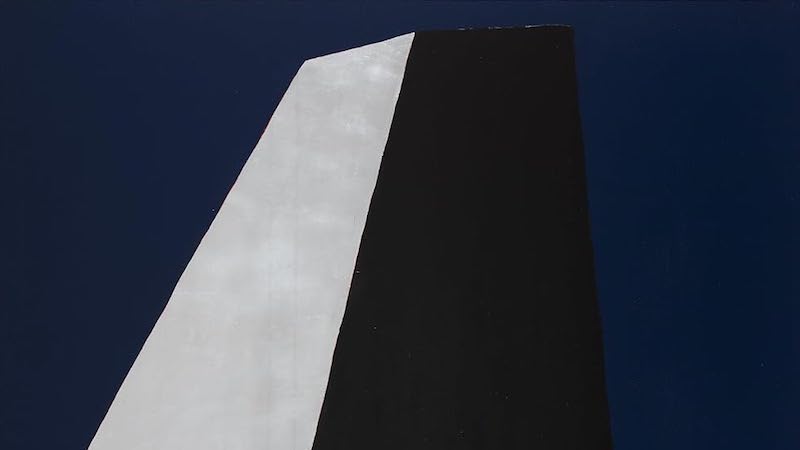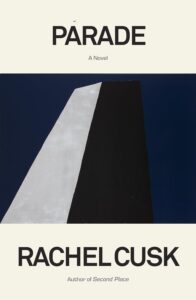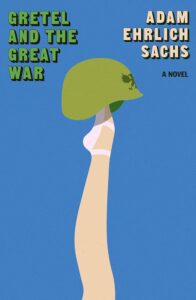
Our fist of furiously good reviews this week includes Nick Hornby on Rufi Thorpe’s Margo’s Got Money Troubles, Becca Rothfeld on Jill Ciment’s Consent: A Memoir, Lucy Atkins on Rachel Cusk’s Parade, Rachel Riederer on Zoë Schlanger’s The Light Eaters, and Dustin Illingworth on Adam Ehrlich Sachs’s Gretel and the Great War.
“An earnest synopsis of Margo’s Got Money Troubles…might give you the impression that it is overstuffed and, as a consequence, misshapen. Wrestling? OnlyFans? A young mother? Custody battles? Substance abuse? A touch of metafictional playfulness? Jokes about all of these things? But it is overstuffed only in the way a pillowcase is overstuffed on Christmas morning, if you’re lucky. You don’t see lumps; you see only gifts, and Thorpe is a generous, if unseasonal, Santa … all this can work only if the writer has both control of the material and a loving eye, and the warmth of Thorpe’s tone, together with the thoroughness of her imagination and the artfulness of her pacing, means that skepticism is kept at bay … Keeping the ship steady is one of the hardest things to do in an accessible work of comic fiction; often, a less skilled writer will decide too late that they want depth and meaning, and resort to chucking something difficult into the mix. But here it feels as if Thorpe embedded the book’s knottier subjects—the inappropriate relationship with the professor, the sex work, the drugs—in her initial planning, and found a way to accommodate them without jarring the reader into resistance.”
–Nick Hornby on Rufi Thorpe’s Margo’s Got Money Troubles (The New York Times Book Review)
“Arnold taught Ciment, but he also managed to adore her. Despite her feminist convictions, despite her agonized awareness of the lechery of his initial overtures, despite her disgust at the cliché of an older man chasing after a youthful ingenue, she cannot deny that Arnold played two contradictory parts successfully … At pains to remind us that memoirs can easily lapse into mythology … Ours is evidently an age of reappraisals, but this latest reappraisal itself invites reappraisal, for it is eager to undermine its own authority … Ciment asks whether her marriage was all ‘fruit from the poisonous tree.’ It is a daring question, and she is unsentimental and unflinching enough to answer it convincingly, which is to say, complexly. She shrinks from nothing in her accounting: not from Arnold’s sordid advances, not from her teenage naiveté, not from the many indignities of her situation. Nor does she shrink from the most scandalous surprise of all: the possibility of a love forceful enough to overturn the habitual hierarchies … Ciment’s thesis at art school reimagined pornographic scenes from the female perspective, and Consent makes an analogous intervention, rewriting the classic seduction plot from the younger woman’s point of view. Ciment wonders what would have happened to Lolita if she had cared for Humbert as he aged. Perhaps both characters would have escaped their mutual idealization and grown into true equals. In all likelihood, this is a consoling fiction, but as Ciment stresses, memoirs are fictions, too. And aren’t relationships the most powerful fictions of all? Like Arnold’s portrait, they show us possibilities that we could never have dreamed up alone, and like all works of art, they admit of emendation. Revision—even redemption—is possible. We are never consigned to the first or the ugliest draft.”
–Becca Rothfeld on Jill Ciment’s Consent: A Memoir (The Washington Post)

“Rachel Cusk’s repeated attempts to exterminate the novel while still writing one are genuinely impressive … now there’s Parade, an icy thought experiment … There is a definite feeling that the novel has been stitched together from vignettes, stories, articles and musings … The notion of the artist as an observer runs through Parade: the artist is a spy, hidden, invisible, effaced. The act of observation isn’t straightforward, though—nothing is with Cusk. The watcher/artists perceive the world upside down, at an angle, or partially, through windows or lenses. And the world itself is off-kilter: midwives are murderers, the child contains the mother, the storyteller offers not clarity, but confusion. Intellectually, these thoughts can be exhilarating. Instead of plot or character development, Cusk offers a gimlet-eyed analysis of what it is to be the creator of a world in which nobody really exists, not even the creator. Novelists who question the point of novel-writing are hardly new, of course (‘It’s a bad habit, writing novels,’ Virginia Woolf once wrote, ‘it falsifies life’). What’s odd is that, as with the Outline Trilogy and Second Place, this Cuskian narrator’s voice—cold, detached, judgmental, excoriating—emerges as a dominant and distinctive energy, an individual. Has Cusk’s attempt to expose ‘character’ as an artificial construct—both on the page and in real life—failed because this voice feels so distinct? Or is Parade an acknowledgment that no matter how hard a novelist works to redefine the act of putting words on the page, those words will inevitably cohere into a shape that we, the ignorant, grasping reader, will insist on identifying as ‘character’? There is no way to know because Cusk withholds cohesion. She makes no concessions to the reader’s desire for clarity, or to the limits of our knowledge.”
–Lucy Atkins on Rachel Cusk’s Parade (The Guardian)
“Schlanger writes about scientists who are studying how plants change their shape and respond to sound, how they use electricity to convey information, how they send one another chemical signals. Along the way, she becomes a sort of anthropologist of botanists … Schlanger’s focus on the botanists themselves overcomes a challenge inherent to science writing: where to find drama. Changes in scientific understanding don’t often carry a big emotional charge, and writing that focusses on them can risk feeling dry, or without stakes. For those who are curious about a given system, the information alone is enough. Everyone else, though, needs a story … The Light Eaters is a special piece of science writing for the way it solves the genre’s bind; it doesn’t force its people or their findings into narrative engines. Instead, the field of botany itself functions like a character, one undergoing a potentially radical change, with all the excitement, discomfort, and uncertainty that transformation brings … Schlanger’s personal narrative gives the story its frame—we learn up front that when she started her research she was a jaded climate reporter, and through her immersion in plant science she rediscovers an appreciation of nature. But the book’s power comes from showing a field in flux and reminding us that ideas have their own life cycles: from crackpot theory to utter embarrassment to real possibility to the stuff of textbooks.”
–Rachel Riederer on Zoë Schlanger’s The Light Eaters (The New Yorker)

“Interwar Austria—baroque, violent, demented, doomed—flickers into view in Adam Ehrlich Sachs’s new novel, Gretel and the Great War. No staid work of history, this. Sachs draws from the madcap, darkly comic tradition of postmodern European fiction to reimagine the continent’s catastrophic destiny … The stories, with their alliterative and sometimes zany subtitles…evoke both the familiarity and menace of fairy tales. They are interconnected in setting, protagonist and event, though this becomes clear only over time. The various characters—an aging starlet, the director of a theater that burns to the ground, a possibly pedophilic painter, a duchess who nurtures a porcelain doll, a murdered toymaker—circle one another ominously. Taken singly they are toylike, parabolic oddities. Together they reveal the cracked facade of the ‘contrived, hypocritical, highly populated city’ … The topsy-turvy, paranoid society they describe intimates the larger psychic darkness consuming Vienna, that of the merciless war they’ve only recently suffered and the larger conflict they cannot yet envision … The central characters of Gretel and the Great War seem to be listing reasonable assertions against an unreasonable world. Their delusions, though, are finally untenable. They present their evidence to an empty court.”
–Dustin Illingworth on Adam Ehrlich Sachs’s Gretel and the Great War (The New York Times Book Review)


